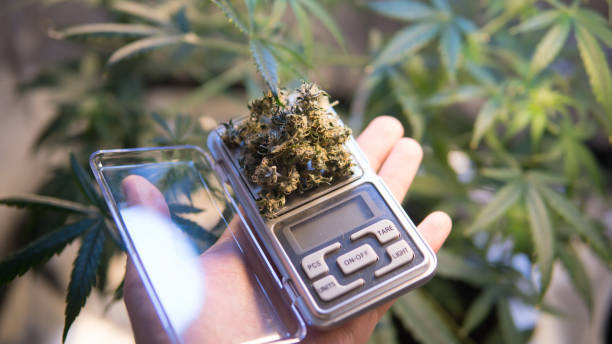

Understanding federal and state tax regulations for cannabis businesses can be a complex and daunting task. As the cannabis industry continues to grow, it is crucial for business owners to have a solid grasp on the various tax laws that apply to their operations.
At the federal level, cannabis businesses face unique challenges due to the fact that marijuana is still classified as a Schedule I controlled substance. This means that businesses cannot deduct ordinary business expenses on their federal tax returns, leading to higher tax liabilities. Additionally, there are strict reporting requirements for cash transactions, as many banks are hesitant to work with cannabis companies due to federal regulations.
On the state level, each jurisdiction has its own set of tax laws and regulations that must be followed. Some states impose excise taxes on cannabis sales, while others have specific licensing fees or additional taxes for cultivation facilities. It is essential for business owners to stay up-to-date on these regulations in order to avoid penalties or fines.
Navigating the complex landscape of cannabis taxation requires careful planning and attention to detail. Many businesses choose to work with experienced accountants or tax professionals who specialize in this area to ensure compliance and maximize deductions wherever possible.
In conclusion, understanding federal and state tax regulations for cannabis businesses is crucial for success in this rapidly growing industry. By staying informed and seeking out professional guidance when needed, business owners can navigate the complexities of taxation while focusing on growing their operations.
Accurate record-keeping is essential for any business, but it holds even greater importance in the cannabis industry when it comes to tax preparation. The regulations surrounding cannabis taxes are complex and constantly evolving, making it crucial for businesses to maintain detailed and precise records of their financial transactions.
One of the primary reasons why accurate record-keeping is so critical for cannabis tax preparation is because the industry is heavily regulated at both the state and federal levels. Without proper documentation, businesses may run into compliance issues that could result in hefty fines or even legal consequences. By keeping meticulous records, companies can ensure that they are fully transparent with tax authorities and demonstrate their commitment to following the rules.
Additionally, accurate record-keeping can help cannabis businesses maximize their deductions and credits come tax time. With careful tracking of expenses such as payroll, inventory costs, and operational overhead, companies can identify opportunities to offset their taxable income and potentially lower their overall tax liability. This level of detail not only benefits businesses financially but also provides peace of mind knowing that they are taking full advantage of all available tax incentives.
In conclusion, accurate record-keeping is a fundamental aspect of successful cannabis tax preparation. By maintaining thorough and organized records, businesses can navigate the complexities of the industry's tax landscape with confidence and integrity. Ultimately, this practice not only ensures compliance with regulatory requirements but also enables companies to optimize their financial position while operating within the bounds of the law.

A cannabis CPA, or Certified Public Accountant specializing in the cannabis industry, plays a crucial role in ensuring the financial health and compliance of cannabis businesses.. These professionals are well-versed in the complex accounting and tax regulations that govern this rapidly growing industry.
Cannabis CPAs provide a range of services tailored to the unique needs of cannabis businesses, including tax planning and preparation, financial statement analysis, budgeting and forecasting, inventory management, and compliance with state and federal regulations.
Posted by on 2024-04-08

Cannabis businesses face unique financial challenges and considerations due to the ever-evolving legal landscape, regulatory requirements, and industry-specific risks.. As such, it is crucial for these businesses to work closely with a Certified Public Accountant (CPA) who has experience in the cannabis industry to ensure their financial success.
One of the key financial considerations that a CPA can assist cannabis businesses with is tax compliance.
Posted by on 2024-04-08

Financial management in the cannabis industry is a crucial aspect that requires careful planning, monitoring, and execution.. With the rapidly growing legalization of cannabis across various states and countries, it is essential for businesses operating in this industry to adopt best practices for managing their finances effectively.
One of the key best practices for financial management in the cannabis industry is maintaining accurate and detailed records.
Posted by on 2024-04-08
When it comes to cannabis tax preparation, it's important for businesses in the industry to take advantage of deductions and credits that may be available to them. While federal tax laws are still restrictive for cannabis businesses due to the plant's Schedule I status, there are still opportunities for savings.
One key deduction that is often overlooked by cannabis businesses is Cost of Goods Sold (COGS). This includes expenses directly related to the production or sale of the product, such as cultivation costs, manufacturing costs, and packaging costs. By properly tracking and categorizing these expenses, businesses can significantly reduce their taxable income.
Another important deduction is Section 280E, which disallows most business expenses for companies involved in trafficking controlled substances. However, there are still ways for cannabis businesses to minimize their tax liability by structuring their operations strategically and maximizing deductions related to COGS.
Additionally, cannabis businesses may also be eligible for various tax credits at the state level. These can include incentives for hiring local employees, investing in renewable energy sources, or promoting sustainability practices.
Overall, navigating the complex world of cannabis tax preparation requires a thorough understanding of relevant regulations and a strategic approach to maximizing deductions and credits. By working with experienced professionals who specialize in cannabis taxation, businesses can ensure they are taking full advantage of all available opportunities to reduce their tax burden and improve their bottom line.
When it comes to the cannabis industry, one important aspect that business owners need to consider is tax liability. With constantly changing regulations and restrictions, navigating the world of cannabis taxes can be complex and overwhelming. However, there are strategies that can help minimize tax liability for businesses in this industry.
One key strategy is to take advantage of available deductions and credits. By keeping detailed records of expenses and investments, businesses can maximize their deductions and reduce their taxable income. This includes deducting costs associated with growing, processing, and selling cannabis products, as well as expenses related to compliance with state regulations.
Another important strategy is to structure the business in a way that minimizes tax liability. This may involve choosing the right entity type, such as a C corporation or an S corporation, depending on the specific needs of the business. Additionally, setting up separate entities for different aspects of the business can help allocate income and expenses in a way that reduces overall tax liability.
Business owners should also stay informed about changes in tax laws and regulations that may impact their operations. By staying ahead of any potential changes, businesses can adjust their strategies accordingly to minimize tax liability.
In conclusion, minimizing tax liability in the cannabis industry requires careful planning and strategic decision-making. By taking advantage of available deductions and credits, structuring the business effectively, and staying informed about changes in tax laws, businesses can navigate the complexities of cannabis taxes successfully.
Tax preparation for a cannabis business can be tricky, but there are some common mistakes that you can avoid to make the process smoother. One of the biggest mistakes is not keeping accurate and detailed records of your expenses and income. It's important to keep track of all your transactions, including purchases, sales, salaries, and any other financial activities related to your business.
Another mistake to avoid is mixing personal and business expenses. It's crucial to keep these separate in order to accurately calculate your tax liability. This includes having a dedicated business bank account and credit card for all cannabis-related transactions.
Additionally, failing to comply with state and local tax regulations can lead to costly penalties. Make sure you understand the specific tax laws that apply to your cannabis business and stay up-to-date on any changes or updates.
Lastly, hiring a professional accountant or tax preparer who has experience working with cannabis businesses can help ensure that you're taking advantage of all available deductions and credits while remaining compliant with tax laws.
By avoiding these common mistakes and being diligent in your record-keeping and compliance efforts, you can streamline the tax preparation process for your cannabis business.
When it comes to navigating the complex world of cannabis tax preparation, working with a professional accountant or tax preparer specializing in the cannabis industry can make all the difference. These experts have a deep understanding of the unique challenges and opportunities that come with running a cannabis business, and can provide valuable insights and guidance to ensure compliance with ever-changing regulations.
From navigating deductions for expenses related to cultivation, manufacturing, and retail operations, to ensuring accurate reporting of sales and excise taxes, a specialized accountant or tax preparer can help maximize tax savings while minimizing the risk of audits or penalties. They can also help streamline financial processes, optimize cash flow management, and provide strategic advice for long-term growth and sustainability.
By partnering with a professional who understands the nuances of the cannabis industry, business owners can focus on what they do best – growing their business – while leaving the complex world of tax preparation to someone who has their back. With their expertise and experience, these professionals can help ensure that cannabis businesses are not only compliant but also thriving in an increasingly competitive market.
In conclusion, working with a professional accountant or tax preparer specializing in the cannabis industry is essential for any cannabis business looking to navigate the complexities of tax preparation. With their knowledge and expertise, these professionals can provide invaluable support that goes beyond just crunching numbers – they can help businesses thrive in an ever-evolving regulatory landscape.